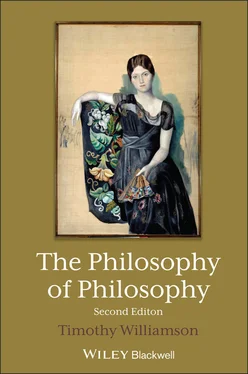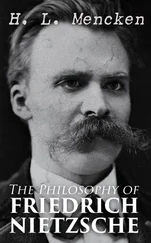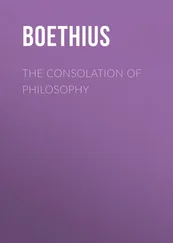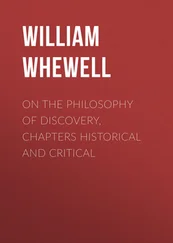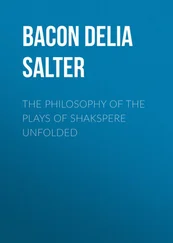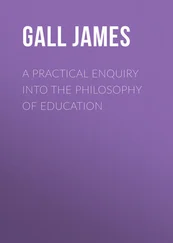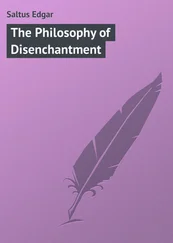It was as though such a revolution was not supposed to happen. Whether historians of analytic philosophy preferred its logical positivist or its ordinary language strand, its predicted further development would not be in the direction of pre-Kantian metaphysics. From an older perspective, philosophers such as Kripke and Lewis looked like anomalies, anachronisms, to be swept away by the zeitgeist , unworthy of serious historical treatment. Instead, the opposite happened. Their ways of doing philosophy gradually prevailed, to an extent increasingly hard to marginalize historically, whether one approved of them or not. The first edition of this book was obviously a product of that turn in philosophy, but did not say very much about its history.
Some years later, the historian of philosophy Miroslava Trajkovski encouraged me to give a talk at the University of Belgrade, to help bring later developments in analytic philosophy alive for her students by drawing on my personal acquaintance with many of the protagonists. I used the opportunity to reflect historically on the transition from linguistic philosophy to contemporary metaphysics, and describe how it felt to one person at the time. The result was my article “How did we get here from there? The transformation of analytic philosophy”, now included as the additional Section 9.1. It is not meant as a work of serious historical scholarship, but rather as a provocation to others to produce such works on post-1960 developments in analytic philosophy. Indeed, things had already begun to improve in that respect. Such historiography is now flourishing. For example, the massive influence of David Lewis has become well-recognized, and his key role in the history of post-1960 analytic philosophy is being analyzed in detail. After all, the period from 1960 to 2020 is just as long as that from 1900 to 1960, and just as deserving of historical study. 7 , 8
The reception of the first edition and of “How did we get here from there?” was in many ways gratifying. However, I will not resist one grumble. The experience brought home to me that not all historians of philosophy read a contemporary philosophical text with the professional accuracy or empathy one might expect. I give samples without naming names. Where I wrote “looked,” it was irritating to be read as if I had written “is”; I used the past (not present) tense and the verb “to look” (not “to be”) for a reason. It was irritating too to be read as if I must be using the word “analytic” in Kant’s sense, not in the clearly broader sense standard in analytic philosophy for the last half-century. It was also irritating when my deliberately casual introduction of the phrase “armchair knowledge” for an overtly heterogeneous range of cases was read as aiming to replace the term “ a priori ” by a more precise substitute better suited to epistemological theorizing (171, this volume). Alas, no philosophical text is proof against determined attempts to interpret it to suit the interpreter’s purposes.
2. Experimental philosophy
The first edition treated another topic only briefly: the “negative program” of some “experimental philosophers” against “armchair philosophy.” It explained why their talk of “philosophical intuitions” failed to pick out a psychologically distinctive kind, and why thought experiments are not cognitively exceptional, as they assumed, but I did not engage with their texts in much detail.
However, the fashion for experimental philosophy was growing, and I often encountered (and still encounter) surprisingly crude misunderstandings of my objections to the negative program. Do the rejected obsolescent armchair methods include reading a philosophical text carefully and grasping its dialectical structure? In particular, many people took for granted that the book “defended philosophical intuitions,” when in fact it argued that thinking in terms of philosophical “intuitions” leads one hopelessly astray. I was also persistently classified as an “enemy of experimental philosophy,” despite having engaged in it myself (Bonini, Osherson, Viale, and Williamson 1999). Indeed, given the book’s keynote anti-exceptionalism about philosophy, it would have been absurd for me to argue that experimental results are in principle irrelevant to assessing the reliability of a philosophical method. But to assess it properly, you must first understand both what the method is and how it is being applied in particular cases. In practice, proponents of the negative program often – though not always – violated these conditions, either by seeing the methodological issues through the distorting lens of the category “philosophical intuitions,” or by making sundry naïve or impatient errors in handling the first-order philosophical issues themselves.
The negative program worried me because it had the potential to do serious damage to intellectual standards in philosophy – though its proponents’ intention was undoubtedly the opposite. Of course, no particular thought experiment is above criticism, just as no particular experiment in natural science is above criticism. But the negative program aimed at a much less banal conclusion: roughly, that no thought experiment in philosophy should carry significant weight until its result has been independently endorsed by a large and varied sample of non-philosophers. That is one step towards doing philosophy by opinion poll.
If the negative program were to triumph, its effect would be to drastically impede the use of ordinary examples in philosophy, since each example would require a large and expensive research program over several years to test whether folk worldwide agree that it exemplifies what the philosopher takes it to exemplify (the “philosophical intuition”). That would constitute a strong disincentive to introducing new examples in the first place, since they could always be neutralized, at least for several years, by the generic demand for such experimental testing. Yet, from Socrates on, in both Western and non-Western philosophy, apt and ingenious ordinary examples have been one of the most effective ways of keeping philosophers honest. Without them, high-sounding abstract generalities are liable to go unchecked. Examples bring us back down to earth.
But why should not experiments themselves provide an alternative reality-check on philosophical theorizing? The trouble is that experimental philosophers’ experiments do not test most philosophical hypotheses. They test psychological hypotheses as to whether people’s judgments accord with philosophical hypotheses. For example, they do not test the moral hypothesis that it is a wrong to torture a child for fun; they test the psychological hypothesis that most people think that it is wrong to torture a child for fun. Of course, one can derive a moral hypothesis from the psychological hypothesis that most people accept it, given the auxiliary hypothesis that a moral hypothesis is true if most people accept it, but how is the auxiliary hypothesis itself to be tested? One can experimentally test the psychological hypothesis that most people accept the auxiliary hypothesis, but that is just to embark on an infinite regress of auxiliary hypotheses. I have never seen a plausible account of how philosophy would in practice work better (or at least not worse) once reformed in line with the negative program.
Fortunately, within experimental philosophy, the negative program has receded in recent years. Perhaps the main reason has been that many of the original results suggesting variation with ethnicity and gender in verdicts on thought experiments have failed to replicate, when the experiments were repeated to higher standards. In other cases, the experiments were irrelevant because the questions asked of ordinary subjects involved terms (like “refer”) which philosophers use in technical senses. Indeed, to a surprising extent, philosophers’ thought experiments may be tapping into a universal human cognitive system. As one small branch of cognitive psychology, experimental philosophy is well-suited to investigating nuances of the human cognitive system, including how far they are products of nature, how far of culture. For that fruitful inquiry, an animus against thought experiments is merely a source of bias, conscious or otherwise. The five additional sections, 10.1–10.5, on experimental philosophy in this edition are mainly directed against the negative program, to combat the danger it posed to standards of argument in philosophy, although they also consider problems for the category of “philosophical intuitions” irrespective of the negative program. However, none of this implies any hostility on my part to the general idea that experimentation sometimes plays a legitimate part in philosophical activity.
Читать дальше
